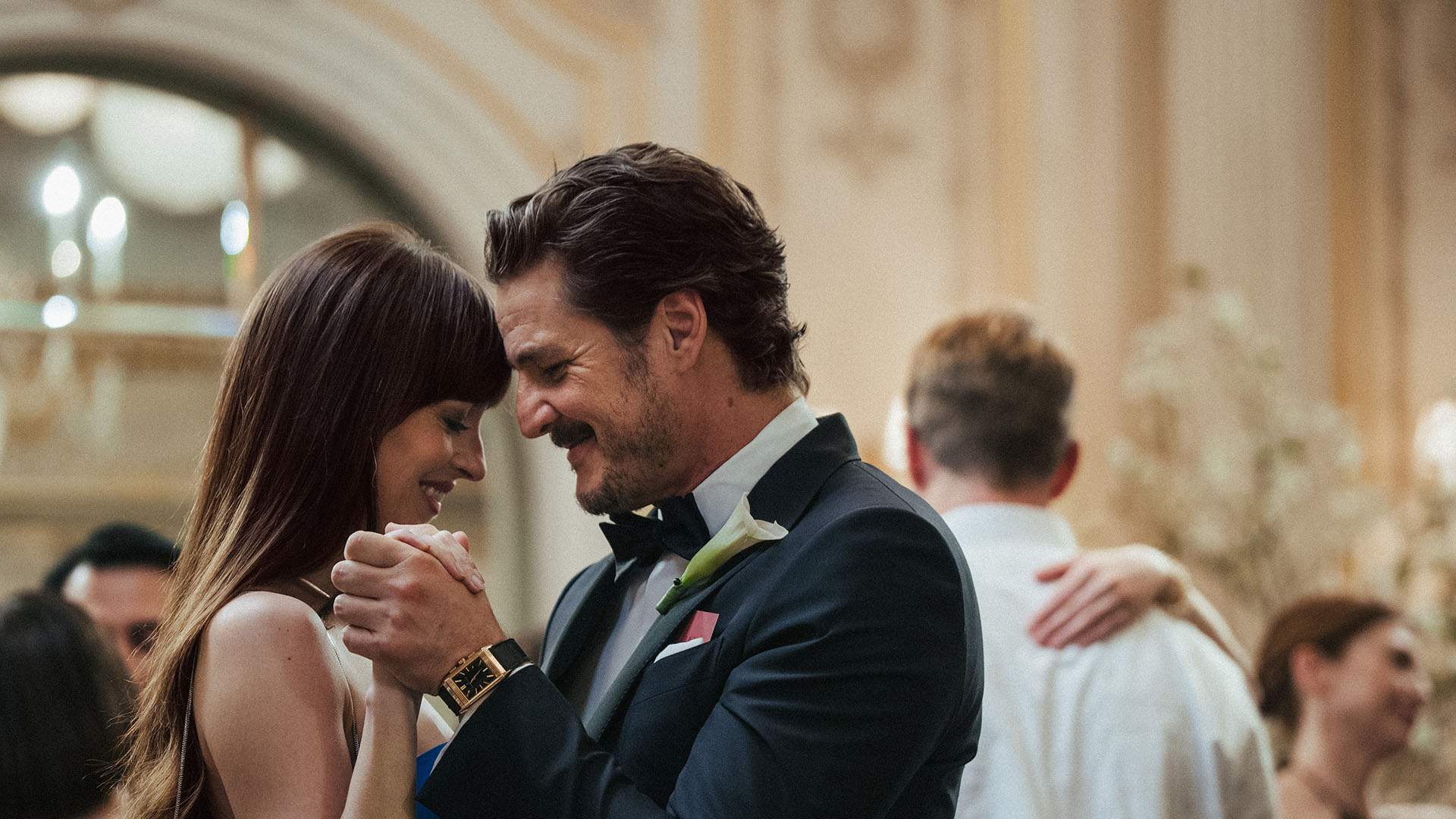Matchmakers, Dating Maths, and Dakota Johnson's Magnetic Chemistry with Pedro Pascal and Chris Evans: Celine Song Talks 'Materialists'
Two years after 'Past Lives' had audiences swooning, Celine Song has again found inspiration in her own experiences — this time from a six-month stint trying to help others find love.
Spoiler warning: this interview incudes specifics about Materialists if you haven't watched the film before reading.
Honesty. Authenticity. Anyone who has seen, swooned over and fallen head over heels for Past Lives, aka one of 2023's very best movies, already knows that these two traits beat at the heart of Celine Song's films. What's present in the writer/director's sophomore feature Materialists more than her Oscar- and Golden Globe-nominated, Gotham- and Independent Spirit Award-winning debut, however, is frankness — especially about people approaching relationships as an arrangement and a transaction, even, and about coupling not just driven by love, fluttering hearts and racing pulses.
As it plunges into the New York City life of Lucy (Dakota Johnson, Madame Web), Materialists is submerged in a matchmaker's existence. That's her job. For those looking for love and willing to pay her high-end employer — so, usually folks with ample cash to splash in the service of meeting their perfect partner — Lucy works her magic. She knows how to woo new clients. She also knows how to seal the deal, with nine marriages springing from her services so far. And, she's well-aware that her gig isn't simply to make sparks fly. With her like with no one else, the Big Apple's bachelors and bachelorettes are unvarnished about their wants and must-haves in a soul mate. They have exact height parameters, and acceptable salary ranges as well. Some sport lengthy lists that go much further. None are particularly willing to budge.
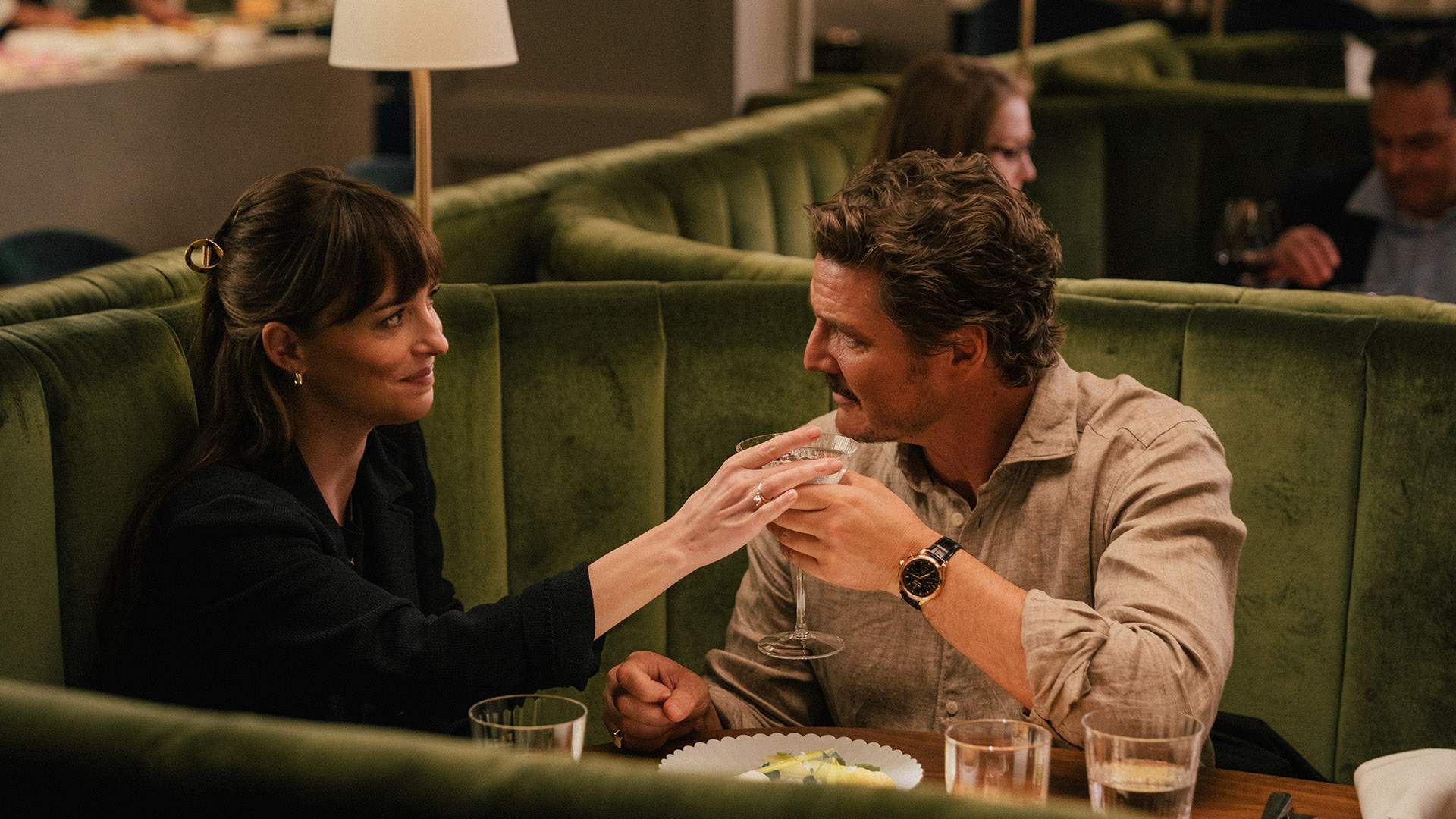
Materialists is a direct film, then, about the objectification and commodification of people that can be layered into the search for someone to spend one's life with, plus the materialistic values that can often become part of that process. Yes, that's weighty for a romance. Song's movie is still both deeply affectionate and genuinely comedic, though — smartly, sharply, astutely and wonderfully so. And, even if its characters sometimes might be, Materialists is never cynical about love, its marvels, and the joys of truly finding someone that makes you instantly imagine your older self next to theirs decades into the future.
Is Materialists saying the normally quiet part about modern love and dating maths, the motivations and reasons that aren't necessarily normally voiced, out loud? "Oh, interesting that you feel that way," is her first response to the question. "I feel like there are fully people who speak this way about love and dating. You go on TikTok, you know," she tells Concrete Playground. "I think that it is actually so much more common — and not only is it common, it is actually the way that my clients would speak."
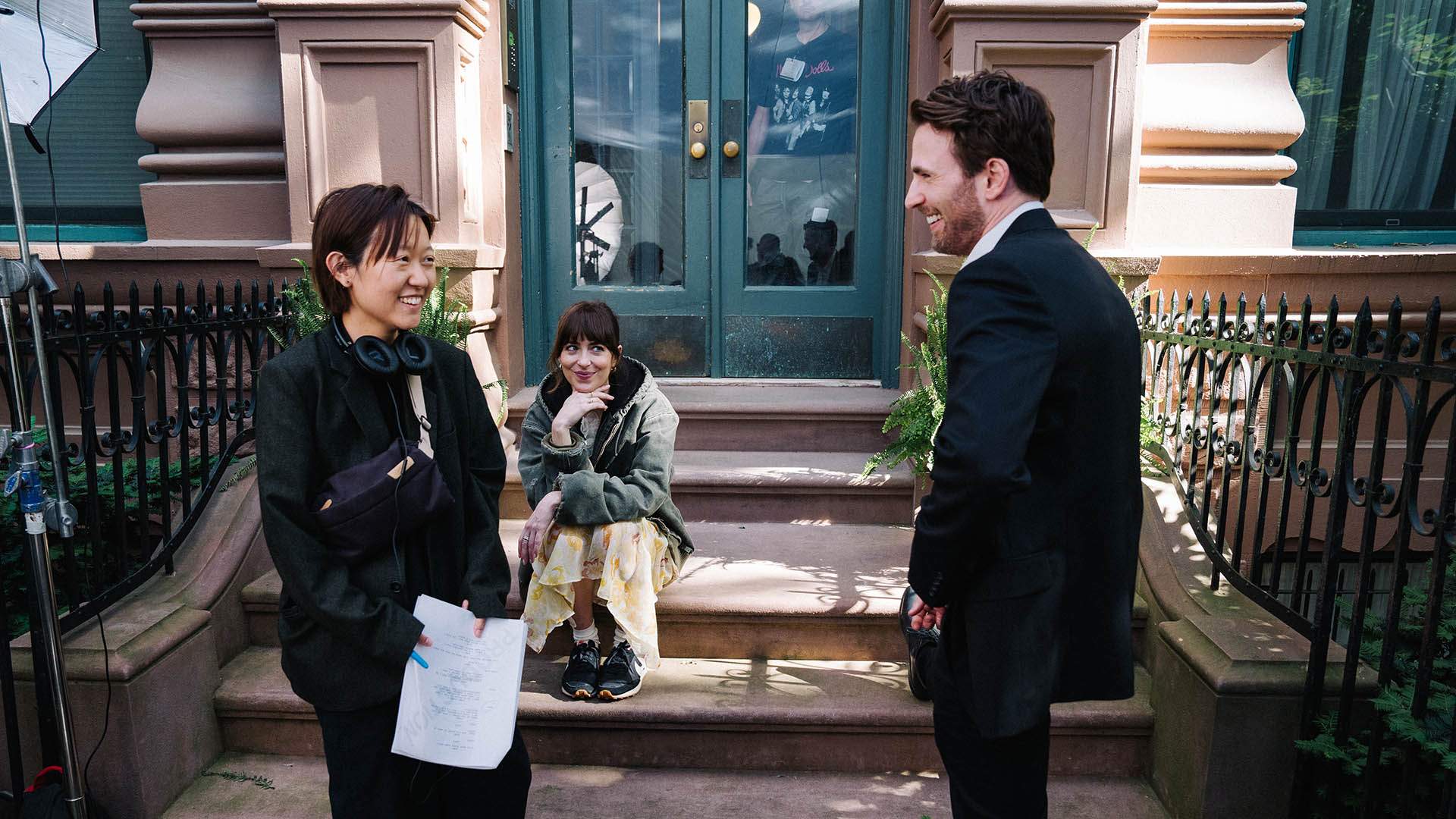
With Past Lives, Song adapted her own experience. She too had a Korean childhood sweetheart. She has an American husband. The movie in its entirety isn't autobiographical, but it grew from that kind of place. With Materialists, Song instead draws upon her own time endeavouring to assist others with their love lives. She was only a matchmaker for around half a year, but that stint has informed her second film that's centred on the emotional journey of a woman torn between her past and her future. Consequently, when Song says that people tackle the quest for a partner like they're putting in a drinks order (a coke and a beer is Lucy's) or making a deal, it's because she has seen it firsthand.
"And also, people will just — like people in my life now, if you ask them what they're looking for, sometimes they will speak that way," Song continues. "And I do think that it is something where it's the quantifying or the turning into numbers, that it is, it gets that literal in that way. As in 'well, even if you're five-two, I still want somebody who's over six-feet tall'. And you're like 'why? Can they be five-ten?'. And they're like 'no'."
Lucy faces this situation day in, day out. Chatting with Song about it, it's clear how intricately that her own time in the same day job while she was starting out as a playwright has fed into Materialists. The romantic options of Lucy's clients aren't the film's key concern, of course, but their attitudes have made an imprint on her own. So, when she has two choices — Harry (Pedro Pascal, The Last of Us), the tall, successful, distinguished, handsome and ultra-wealthy brother of someone that she's just married off; and John (Chris Evans, Red One), a struggling actor making a buck as a cater waiter that she has a past with — this proves a picture about how her personal reality and beliefs about love come to collide.
Upon exiting her matchmaking days, Song knew that it'd play a part in her work at some point. She felt that compulsion immediately. Why? We also explored that in our chat about this seductive and significant — and masterful and meaningful — interrogation of relationships with its guiding force. Do people appraising romance in economic terms consciously realise that they're treating marriage like a transaction, or do they think that that's just a relic of history? How do you approach casting for chemistry, especially when a luminous Johnson, debonair Pascal and never-better Evans are your stars? They're some of the other directions that our discussion with Song charted.

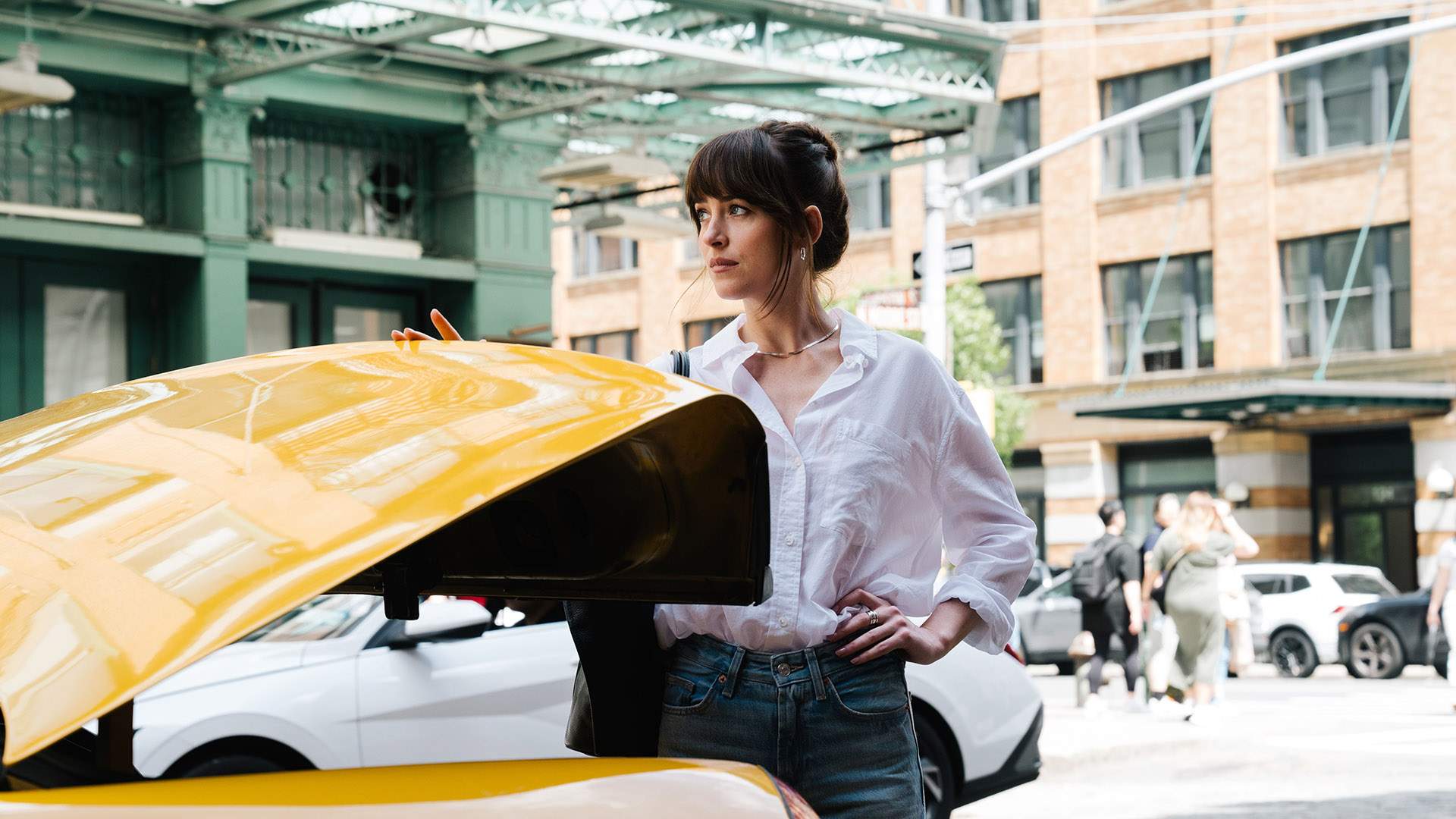
On Song Leaving Her Short Stint as a Matchmaker Knowing That It Would Somehow Inform Her Work — and How Materialists Came About From There
"I think that I walked into that job thinking that it was going to be a day job, but I think I learned more about people and what their hearts desire than almost any other six-month period of my life. And I think that I did walk away from that job feeling like I'm going to make something about it. I was like 'I'm going to devise something about it, I just know it'.
And I think that it's because I'm dealing with people, encountering people, every day who want to find love. But when you ask them what they're looking for, everything that they say about the person that they intend to love are things like height, weight, salary, lifestyle — things that are quantifiable, things that are concerns of an insurance salesperson or somebody at the morgue.
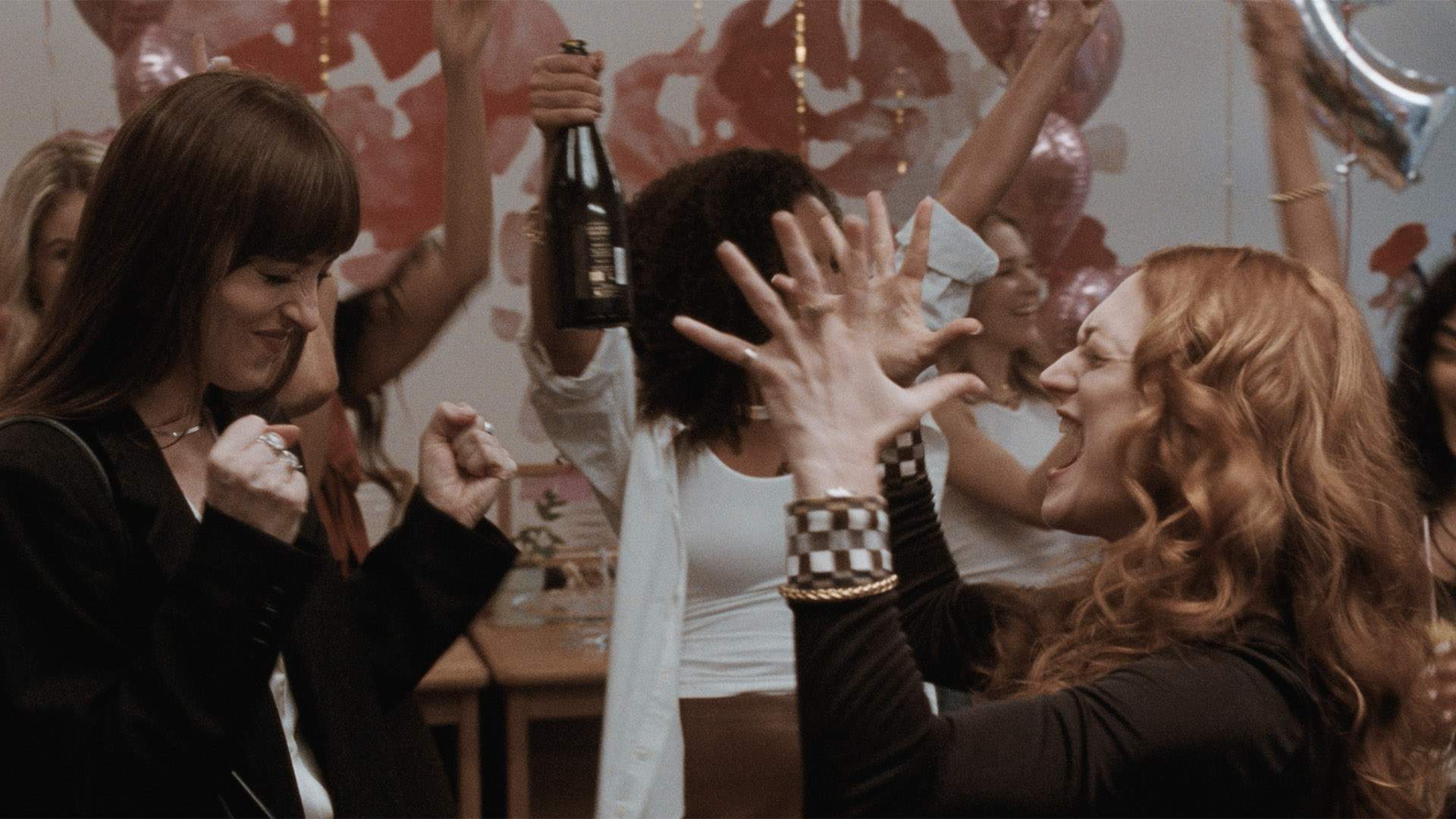
So I think in that way, I was just always so shocked by how different the way everybody's talking about the dating side of the pursuit of love versus what I knew about love. And love is this amazing ancient mystery. It's a complete miracle when it happens. And it's the most beautiful, most dramatic thing that we do in our lives. So it's an amazing thing to just watch such a gap, huge gap, between what is the answer to 'who are you looking for?' and then what it is actually like to be in love and to fall in love.
And I think that that gap, and then the tension in that gap, the contradiction of those two things, I think that was what really made me want to make a movie about it. It just felt like such a powerful mystery and a powerful thing to deal with."

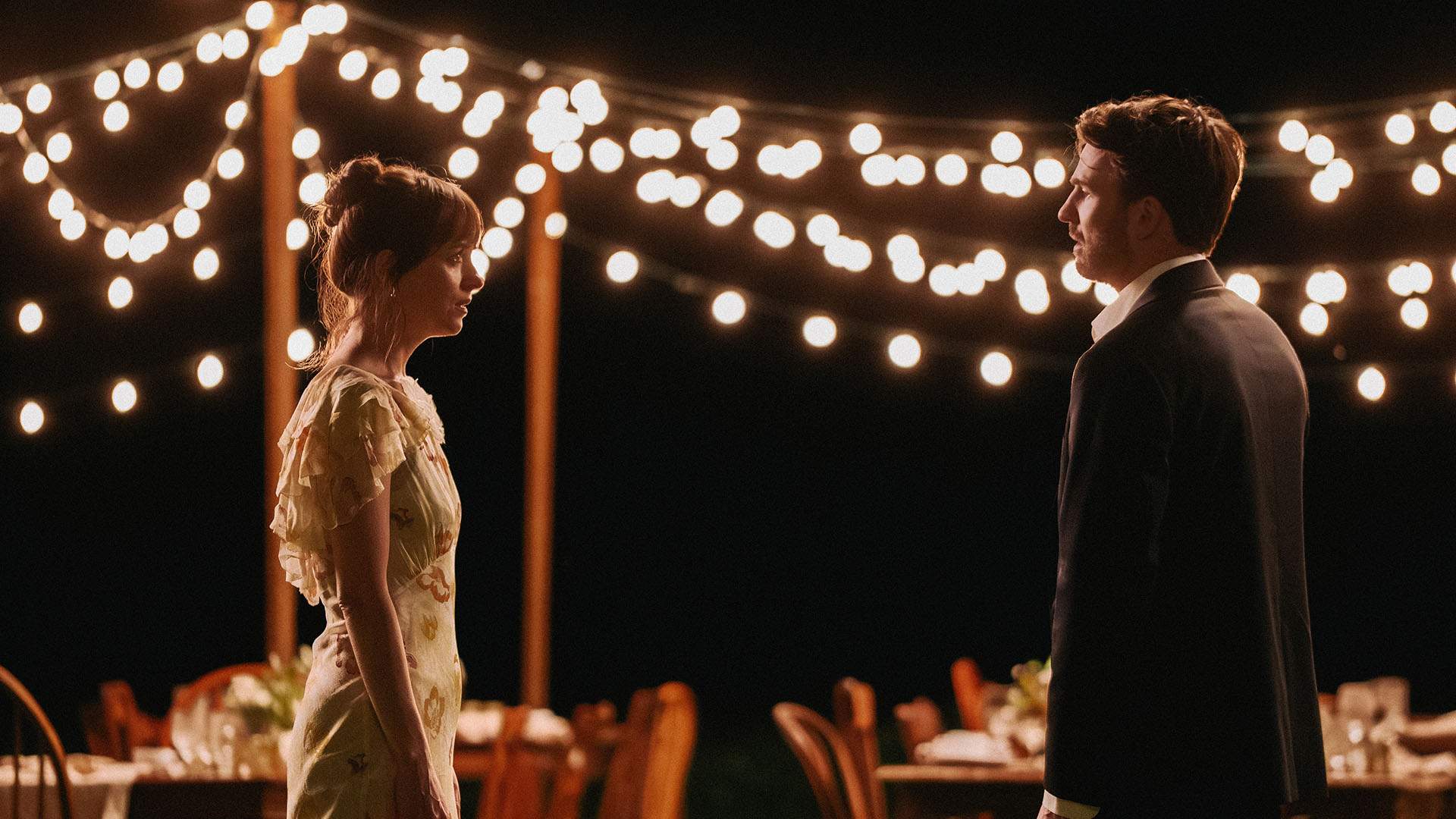
On Whether People Consciously Realise That They're Approaching Marriage Like a Transaction — or If They Think That That's Just a Relic of History, Such as Victorian Romances
"We're not very far from the way that Victorian romances were talking about marriage, because I feel like still this economic pressure, especially as the economic anxieties and financial anxieties are such a fundamental part of our lives, the relief we want from it is, I think, at the heart of our fundamental desires, right?
We're starting to be like 'I would like to be relieved of financial troubles. I would like to be relieved of it'. So part of that relief, desire for relief, is, of course, something that was a fundamental part of the Victorian romances. It's so much about that relief. And I think that we have not come that far from feeling like that's a very good reason to marry someone.
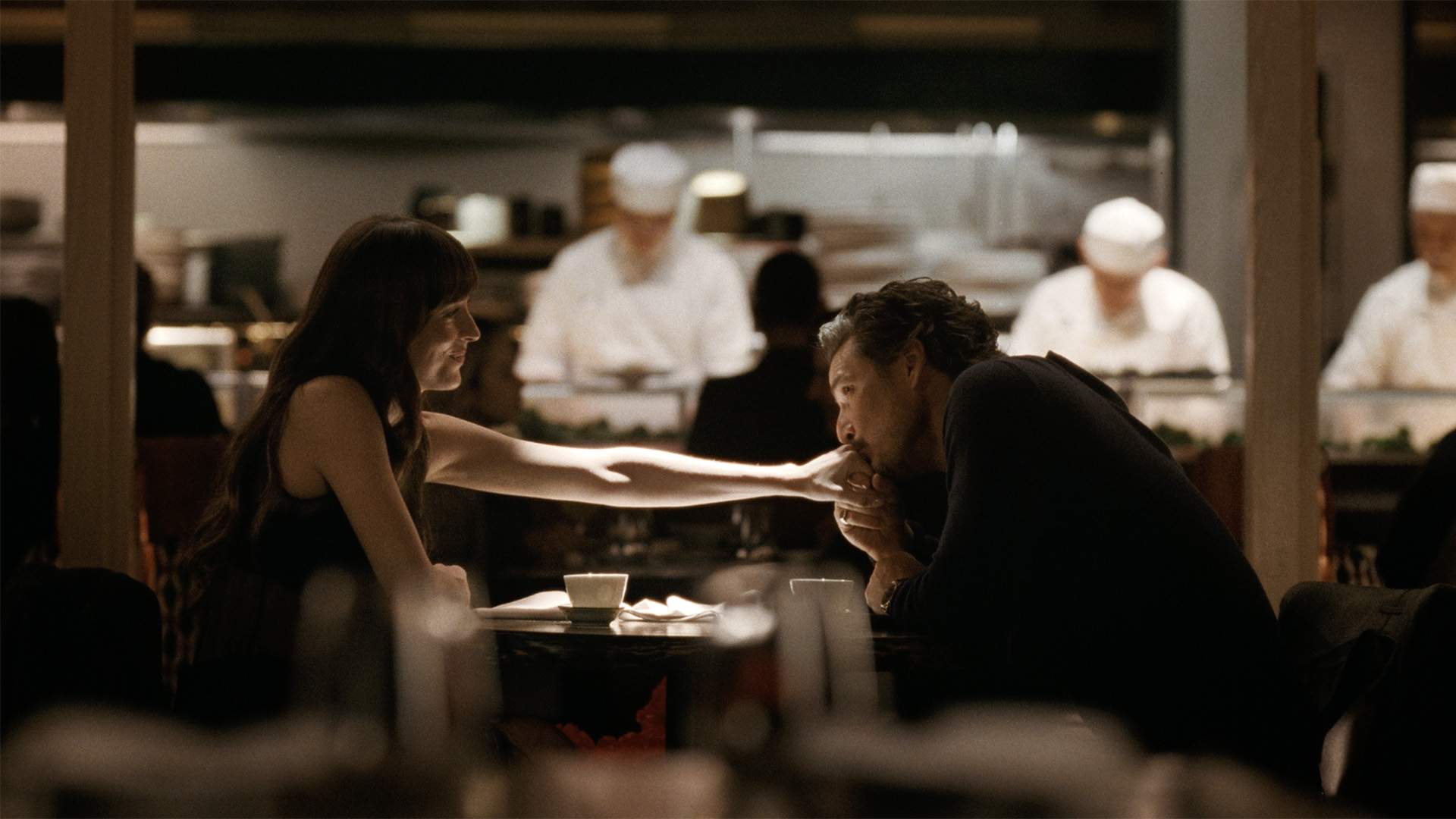
I think that, of course, it's less of a total choice. And then, of course, women make money. So it's kind of like 'of course it's changed a lot in that way'.
But how amazing that women are able to make their own living? And so in that part of this, of course, so far improved — but it still hasn't changed the otherwise very difficult thing, which is that marriage is still seen as a very specific contract. And I think that that is a very reasonable and a normal thing.
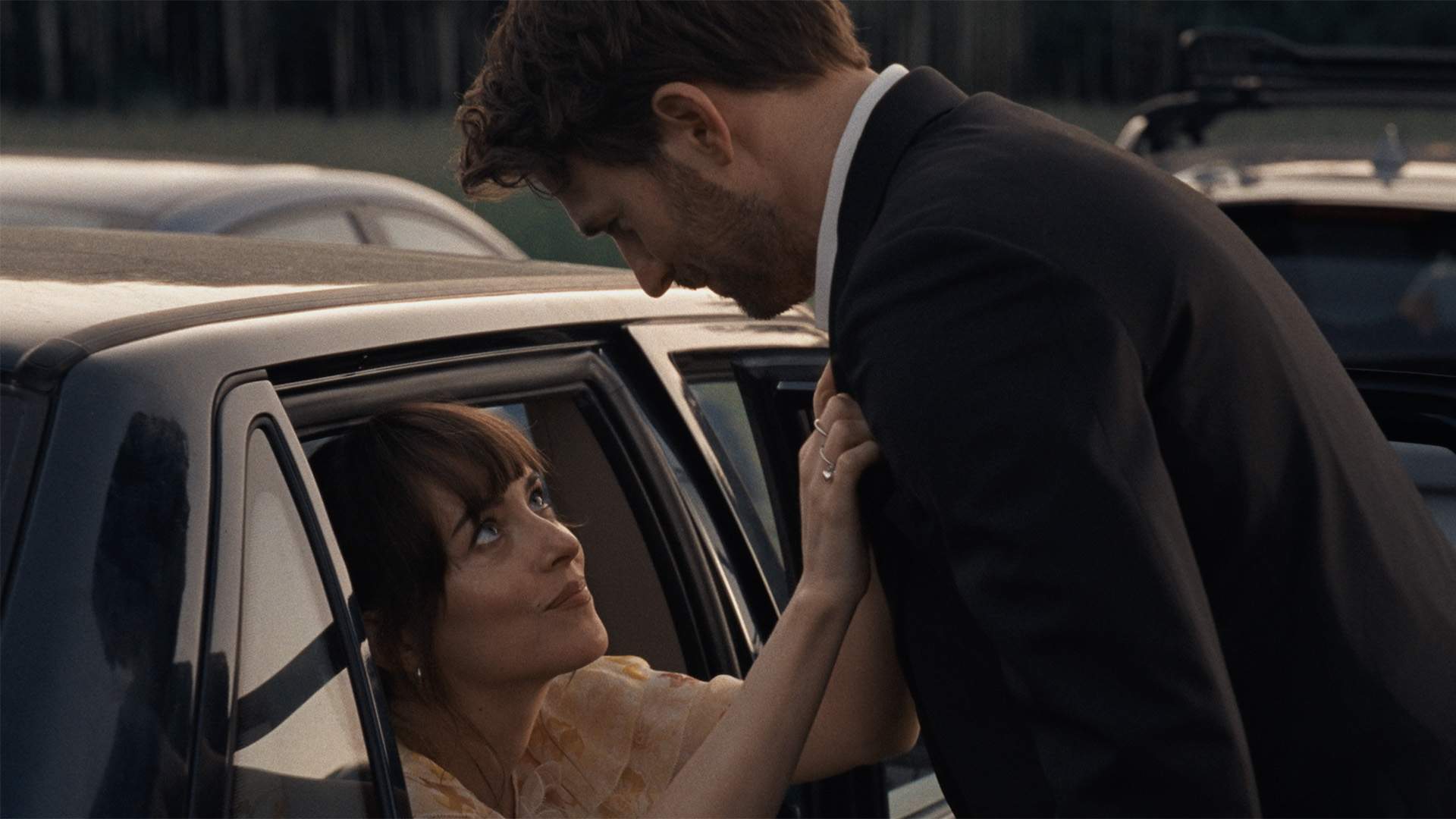
But as Lucy says in the film 'but love has to be on the table', right? You can't walk away, right? Like you can't actually have a business partner for your spouse. Your spouse is your spouse.
You're going to have to change that person's diaper. That person would change your diaper — whatever, one of you is changing the other person's diaper. And the thing is, that's the most romantic thing about marriage, and therefore love has to be on the table."

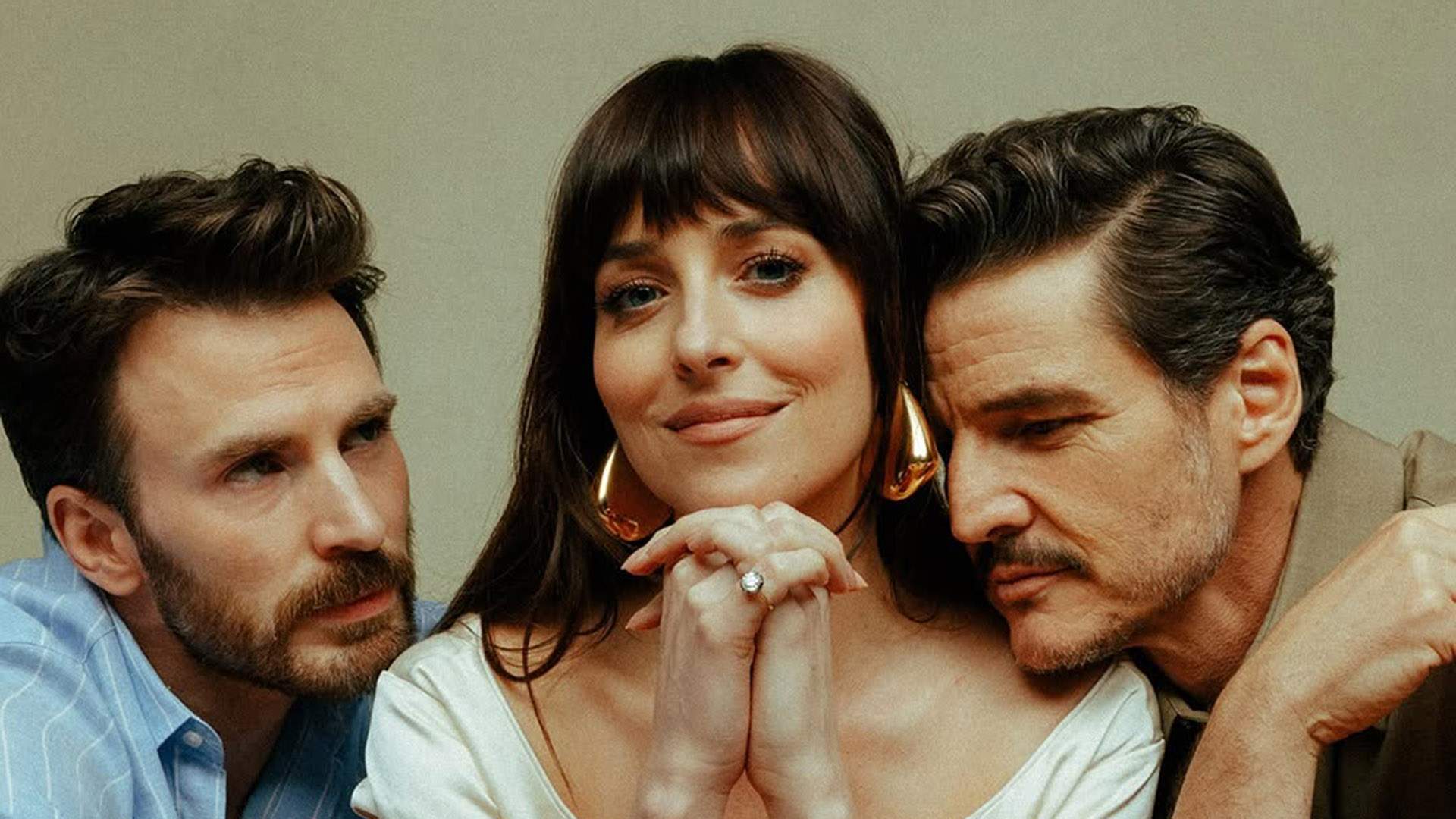
On Song's Approach to Casting for Chemistry — Especially When Casting Dakota Johnson, Pedro Pascal and Chris Evans
"I think that when it comes to chemistry, some of it is just purely instinctual. But it's also so much work that's coming from the actors — as in, it is something that we're working on together as part of the performance, the chemistry.
I think that sometimes people think chemistry is just flirting on-screen, but it's really not about flirting at all. Chemistry is something that you build by having two characters who want different things from each other, and the two of them trying to find a resolution.
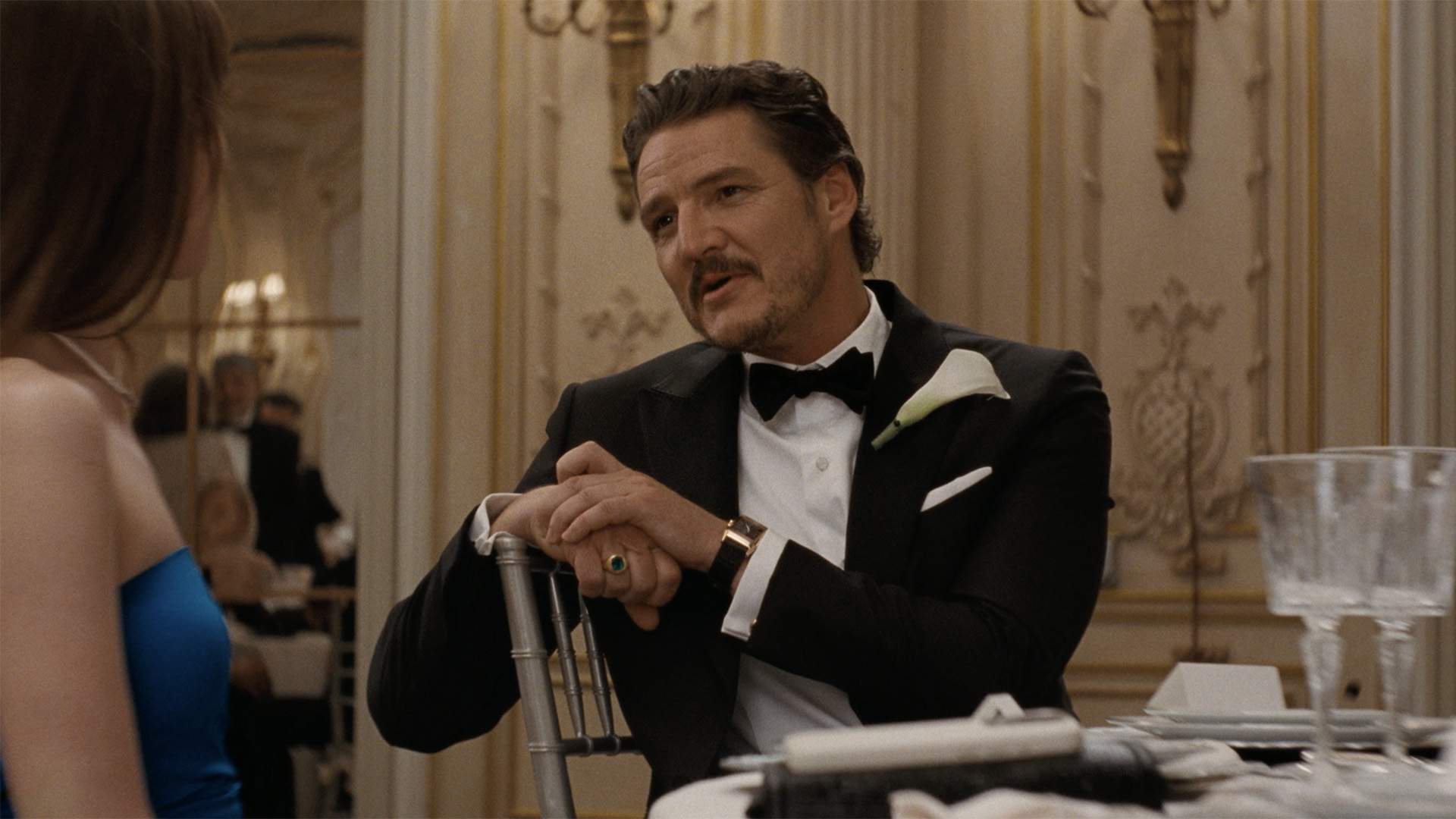
So what I mean by that is, for example, that loading dock scene between John, Chris Evans' character, and Lucy, Dakota Johnson's character, is that the chemistry in that scene is being built by me telling Chris 'you're doing your darndest, you're doing your best, to not kiss her'. And when it comes to Dakota, I'm telling her 'I think that she already knows that she probably will kiss him at some point'. So to me, I'm like 'well, you have two contradicting desires, right?'. And in that, that's where the tension is going to be and that's where the chemistry is going to be. So that's how it gets built.
And the thing is, it's not just that these two people who are flirting with each other and then somehow there's going to be chemistry — there's not. It's all beautifully make believe.

So, much of it I would want to credit the acting, the work that we're doing on it. And this is what I've always believed about chemistry. Chemistry is about erotic desire. And what is erotic desire? Wanting something that you don't have. That's where you can have chemistry.
So I think, to be honest, that's the truth of it. And when it comes to those actors, I think building the chemistry, some of that is just about just knowing it — just knowing that they're going to, all three actors, are going to feel something for each other. That they're going to like each other, and even like just actually feel something for each other in such a deep way as humans. So I think it's really that.
And of course, if they're the right people for each role, and these roles are romantically entangled and have chemistry with each other, they are going to have chemistry with each other. So to me, that's how I would really describe the way to find chemistry."

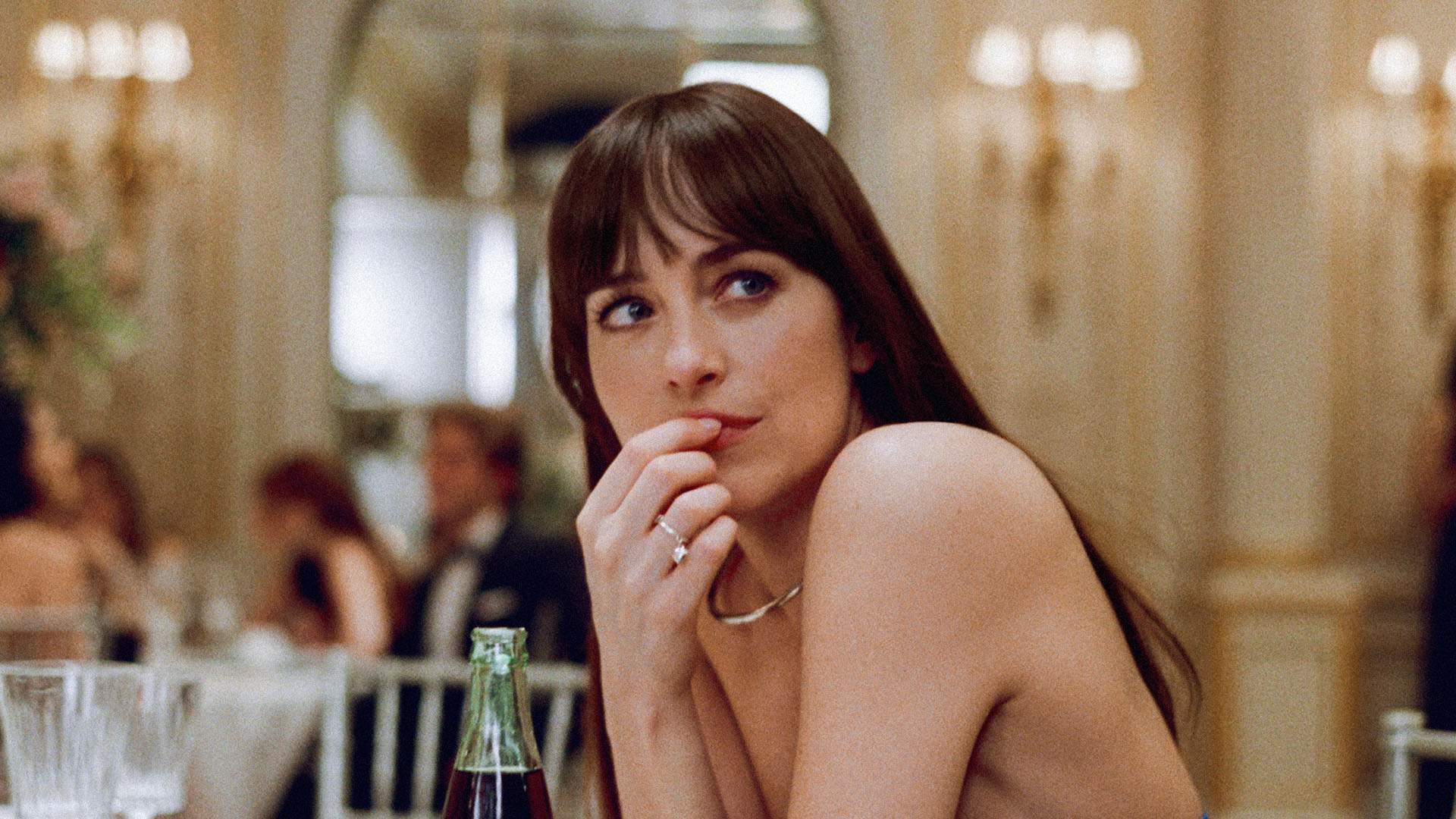
On the Film Exploring Not Only Lucy's Clashing Romantic Options, But the Conflict Between Her Personal Reality and Her Beliefs About Love
"I think the funniest part of it is that she's a matchmaker and she's having trouble finding a match for herself. And that's kind of an amazing dramatic problem — a matchmaker who is looking for love.
So I think that in that way, it was always so important that we're meeting Lucy at the peak of her power and the peak of her feeling that she's the expert, that she knows everything. And then throughout the film, to unravel her until she is somebody who was able to not only accept that she doesn't know, but to also say 'I completely surrender. I completely surrender to love'.
So I think that because that is her journey throughout this film, it was absolutely, yes, exactly what you're describing is the reason I wanted to make this movie.

It was very important for Lucy to start as somebody who is presenting as just the smartest girl ever, and then to end the film making a decision that is with her heart. And it's not going to seem smart to a lot of people — even though the truth is we know that she's making the only smart decision in the whole film, right? Which is to say 'deal' to the one deal that you cannot say 'no' to. That's the only deal that is worth saying 'yes' to. And she does it.
And in fact, that's the beautiful thing. It's like by making a decision that I'm sure, to herself in the beginning of the film, may seem like a stupid decision, she's making the wisest decision she can make about her life — which is to go where love is."

Materialists opened in cinemas Down Under on Thursday, June 12, 2025.
Images: Atsushi Nishijima, A24.
